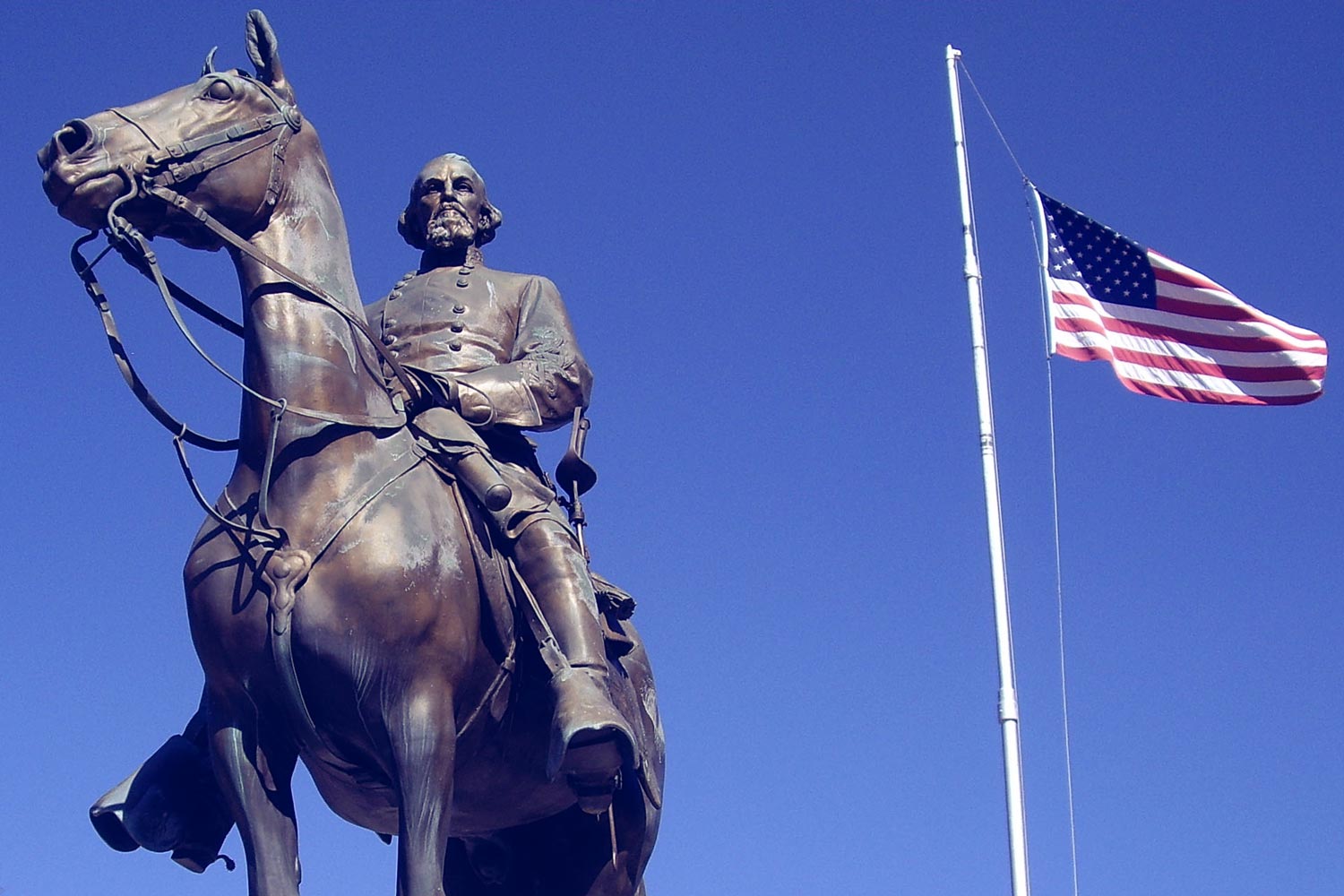The Institute for Environmental Negotiation within the University of Virginia School of Architecture, and the University & Community Action for Racial Equity, or UCARE, have launched a nationwide initiative to help communities address contentious historic sites and memorials, particularly those associated with violence and oppression.
The “Transforming Community Spaces” project will host a series of forums in Charlottesville this spring, develop a free online class to be offered globally this summer, publish downloadable guides accessible to any locale or community member debating how history is portrayed in public spaces, and train a network of facilitators to help communities navigate highly charged issues.
The project, funded by a two-year grant from the W.K. Kellogg Foundation and seed funding from the School of Architecture and the Batten School of Leadership and Public Policy, recognizes the challenges that come with sites identified with the legacies of slavery, colonialism and other harmful histories and will work to develop strategies that uncover hidden histories, advance social justice and promote collective healing.
Frank Dukes, the faculty member in the Department of Urban and Environmental Planning who is directing the project, first became interested in the topic through the Institute for Environmental Negotiation’s work with communities mediating disputes around conflicted sites, ranging from land-use or pollution disputes to social justice concerns. He has also served on the Charlottesville Blue Ribbon Commission on Race, Memorials and Public Spaces and is a member of the design team for UVA’s Memorial for Enslaved Laborers.
Dukes will lead the Transforming Community Spaces online class next summer, sharing lessons learned from the Charlottesville spring forums as well as resources developed by the Institute for Environmental Negotiation, UCARE and project collaborators.
He said that universities are uniquely positioned to help communities understand these multifaceted issues, both because they are home to a wide variety of experts who can provide important context and because universities, especially public universities, offer a place for the community to come together.
“On this project, we will bring together faculty members and students from disciplines like social psychology, history, public policy and architecture, landscape architecture, architectural history and urban planning,” Dukes said. “As a public university, we have resources and knowledge that we can bring to bear on significant problems in Charlottesville, in Virginia, in the country and around the world.”
Along with faculty members, UVA students can play a significant role in the project. Dukes expects at least five undergraduate and graduate student interns to help conduct research, draft resource documents and plan forums.
UCARE, which was launched in 2007 to bring together students, faculty members and community leaders, will host the first forum series this spring, called “Charlottesville Acts for Racial Equity.” Though UCARE has been working on racial and social justice issues for years, the spring forums will be particularly timely after national white supremacist groups violently demonstrated following a vote to remove a statue of Confederate Gen. Robert E. Lee in downtown Charlottesville this summer.
The second project will be in another U.S. city yet to be determined.
“These are not just Virginia issues, nor just Southern issues,” said Tanya Denckla Cobb, director of the Institute for Environmental Negotiation and co-director of the Transforming Community Spaces project.
“There is a movement across the globe to surface the deep legacies of harm that are real and tangible, and to transform public and community spaces as welcoming spaces, rather than perpetuating harm. We hope to help communities do this work.”
Photo at top published under Creative Commons.
Media Contact
Article Information
December 22, 2017
/content/new-initiative-focuses-national-debate-around-public-spaces

